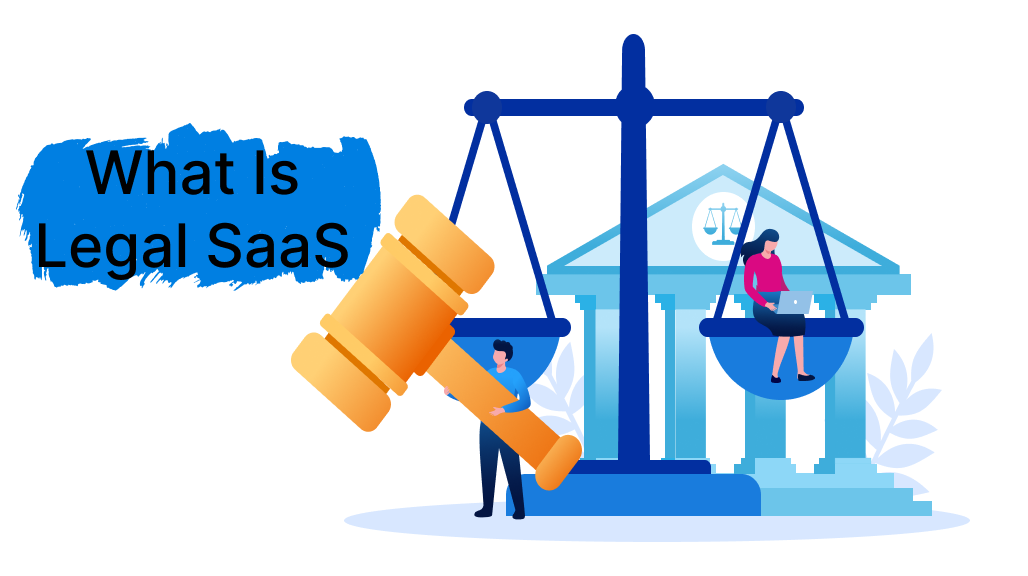If you run a business that sells digital products or handles customer data, it’s important to have legal pages on your website. These pages contain information about your products, services, and online business operations. In a nutshell, they protect both your business and your customers.
For lawyers and legal professionals, having a strong marketing strategy and a visible public presence is essential, especially if you work in the private sector.
There are a whopping 449,633 law firms in the United States, which means fierce competition in the legal industry. Standing out can be tough when there are so many options available.
Understanding WordPress for Legal Services

WordPress is a content management system well-known for its adaptability and user-friendliness, making it a great choice for attorneys looking to establish themselves online. In contrast to specialist website builders intended only for legal practitioners, WordPress offers a degree of customization and versatility that may meet the demands of any law practice. To create a website that not only highlights their experience but also speaks to their prospective customers’ particular worries and inquiries, attorneys must be aware of WordPress’s extensive features and specialized tools.
Is WordPress the Right Choice for Lawyers?

WordPress is a good option if a lawyer wants to start or improve their internet presence. It is very flexible and extremely adaptive to the unique requirements of legal professionals because of its user-centric design. Lawyers can develop a website that displays their professional identity and easily engages and informs potential clients by quickly customizing themes and adding crucial functionality like legal service descriptions, contact forms, and client testimonials. Thanks to WordPress’s vast plugin ecosystem, a secure client portal, online appointments, and SEO tools to boost search engine presence may all be integrated. WordPress is a practical, user-friendly platform that allows attorneys to update and manage their websites without requiring substantial technical expertise.
Choosing a Domain Name
Your domain name is integral to your brand identification and serves as more than simply a website address. Try to pick a name that accurately and properly describes your law business. Make it brief, memorable, and simple to spell. If feasible, incorporate search terms prospective customers could use to find you.
Selecting a Hosting Service
Your hosting service provides the space and resources necessary to make your website accessible online. Since the legal field can be sensitive to privacy and security, choose a reputable host that offers SSL certificates and complies with data protection regulations. Consider services like Bluehost, SiteGround, or WP Engine, known for their WordPress compatibility and support.
Make It Look and Feel Professional

Your website is often the first point of contact for potential clients, so it must look and feel professional. This section will cover the visual elements of your site, including selecting a theme, customizing it, and optimizing for mobile devices.
Choosing a Theme
Choosing a theme is crucial as it affects how your website looks and feels. A simple, elegant, and minimalistic style is ideal for legal services. To guarantee that your website appears great on all devices, search for a theme with a responsive design. Expert themes from official WordPress repositories, ThemeForest, and Elegant Themes are great places to start.
Customizing Your Theme
After you’ve installed your theme, it’s time to customize it. Tailor the artwork, fonts, and colors to complement your branding. Make sure your contact details are constantly accessible and that your brand is shown clearly. If you want something more distinctive or are unsure what would work best for your practice, consider hiring a designer.
Mobile Optimization
Your website must be thoroughly optimized for mobile surfing since a considerable amount of online traffic originates from mobile devices. Although many WordPress themes are responsive by default, it’s a good idea to check again and make any required tweaks.
Legal Sites & SEO with WordPress
Search engine optimization (SEO) of your legal firm’s website ensures the correct people learn about your services online. WordPress is an ally in this endeavor because of its extensive selection of SEO tools and plugins. Strategies like making sure your website loads quickly, utilizing the right keywords in your content, and making sure it’s mobile-friendly are not just helpful but essential.
Yoast SEO and other plugins can help you optimize each page and post according to best practices. The visibility of your website may be greatly impacted by little adjustments like adding picture alt tags and producing interesting, educational content. Ultimately, you want people who want your legal skills to find your website easily, and WordPress has the necessary tools to make that happen.
Conclusion
Creating a WordPress website for legal services is a special chance for attorneys and other legal professionals to improve their online visibility and differentiate themselves in a crowded market. Thanks to WordPress’s adaptability, user-friendliness, and extensive plugin ecosystem, attorneys may construct a personalized website that highlights their experience, responds to inquiries from potential customers, and offers crucial details about their services.
Establishing a credible online presence requires choosing the appropriate domain name and hosting provider. To further guarantee that the website reaches its target audience, mobile user optimization and the application of strong SEO tactics are essential. Legal professionals can use WordPress to build a strong marketing tool that showcases their practice and safeguards their clients and businesses. This approach helps them stand out in the legal field and build deeper, more meaningful connections with potential clients.








